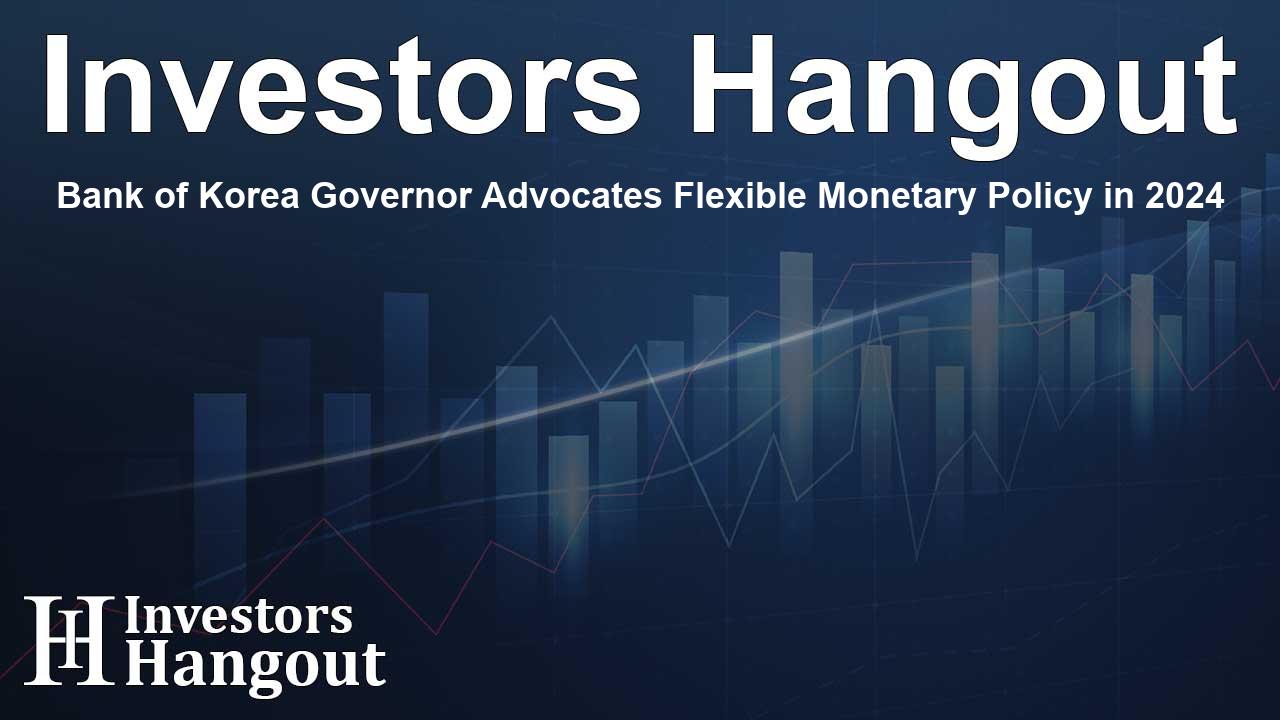Bank of Korea Governor Advocates Flexible Monetary Policy in 2024

Bank of Korea's Stance on Monetary Easing
In a recent address, the governor of South Korea's central bank highlighted the importance of adaptability in monetary easing for the upcoming year. The current landscape is filled with political and economic uncertainties that require a responsive approach to monetary policy.
Challenges Ahead for Economic Growth
Bank of Korea Governor Rhee Chang-yong acknowledged that the economic climate for this year is predicted to be more challenging than ever. The uncertainties surrounding both domestic and foreign economic policies necessitate a flexible strategy in the bank's approach to interest rates.
The Nature of Monetary Policy Flexibility
Rhee emphasized that it is imperative for monetary policy to be executed with agility. As various factors, such as inflation rates, growth, foreign exchange, and household debt come into play, the balance among these will be crucial for shaping policy decisions.
Previous Policy Decisions and Their Impact
Reflecting on earlier policy moves, Rhee noted that the Bank of Korea made a significant decision at its last meeting of 2024 by implementing consecutive interest rate cuts, the first such occurrence since 2009. This action was propelled by concerns over trade risks coming from shifts in the U.S. administration.
Implications of Uncertainty
Rhee's outlook is not without caution. He reported that downside risks to the central bank's growth forecast of 1.9% are more pronounced today, largely due to speculation regarding U.S. trade policies and internal political dynamics.
Currency Volatility Concerns
The South Korean won has faced significant challenges, experiencing over a 12% drop, marking the worst performance since 2008. Rhee indicated that this volatility is likely to continue for an extended period, affecting both domestic and international financial markets.
Conclusion
The Bank of Korea is entering a pivotal year where flexibility in monetary policy is paramount. As the governor has outlined, keeping an agile stance will be vital for navigating the complexities of the current economic landscape. The year ahead demands that policymakers remain vigilant and responsive to reconfigurations in trade and economic growth expectations.
Frequently Asked Questions
What does the Bank of Korea mean by flexible monetary policy?
Flexible monetary policy allows for adjustments in interest rates and strategies in response to changing economic conditions, particularly during uncertain times.
Why is there increased uncertainty in the economic climate?
Uncertainty is largely driven by factors such as fluctuating trade policies, domestic political changes, and external economic influences.
How has the South Korean won performed recently?
The South Korean won has faced significant depreciation, dropping more than 12%, which is the worst performance since 2008.
What are the primary concerns influencing the Bank of Korea's strategy?
Key concerns include trade risks associated with international relationships, domestic economic stability, inflation, and household debt levels.
What predictions were made about economic growth?
The Bank of Korea's economic growth forecast for the year is projected at 1.9%, though there are rising concerns that downside risks may affect this outlook.
About Investors Hangout
Investors Hangout is a leading online stock forum for financial discussion and learning, offering a wide range of free tools and resources. It draws in traders of all levels, who exchange market knowledge, investigate trading tactics, and keep an eye on industry developments in real time. Featuring financial articles, stock message boards, quotes, charts, company profiles, and live news updates. Through cooperative learning and a wealth of informational resources, it helps users from novices creating their first portfolios to experts honing their techniques. Join Investors Hangout today: https://investorshangout.com/
Disclaimer: The content of this article is solely for general informational purposes only; it does not represent legal, financial, or investment advice. Investors Hangout does not offer financial advice; the author is not a licensed financial advisor. Consult a qualified advisor before making any financial or investment decisions based on this article. The author's interpretation of publicly available data shapes the opinions presented here; as a result, they should not be taken as advice to purchase, sell, or hold any securities mentioned or any other investments. The author does not guarantee the accuracy, completeness, or timeliness of any material, providing it "as is." Information and market conditions may change; past performance is not indicative of future outcomes. If any of the material offered here is inaccurate, please contact us for corrections.